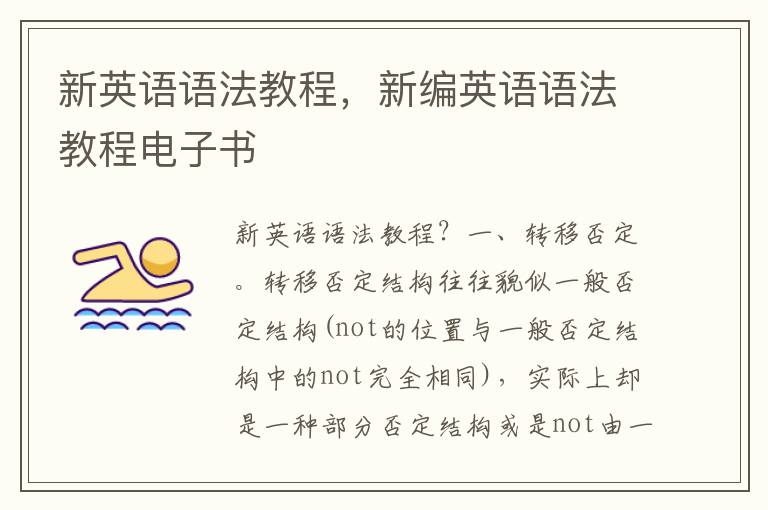【简介】感谢网友“雕龙文库”参与投稿,这里小编给大家分享一些[db:SEO标题],方便大家学习。
Interpreting a Laugh
Huihua, a Chinese student, and Mary, an American student studying Chinese in China, were on their way to a bookstore. As they got to the bookstore, they saw a young man walking down a flight of stairs. In his hurry, he missed the last two steps, and fell on the ground. He struggled to get back to his feet while people around him laughed. Fortunately, he seemed to be O. K.
Mary was worried. She found Huihua smiling a little and was not comfortable about it. "Tell me, Huihua, how could people laugh when someone fell like that? Do they care at all? Shouldn't they go up and ask the young man whether he was hurt?"
Huihua said, "they knew he wasn't hurt too much."
"But I still don't understand. A fall is a fall. In my culture, people would do anything but laugh!"
Chinese perspective
This is another example in which the Chinese and the Westerner interpret a smile differently. As mentioned in the last case, Chinese people resort to laugh or smile when they feel embarrassed. Very often, the person caught in the embarrassing situation would also laugh or make a joke, to ease the embarrassment. However, if someone gets hurt seriously, it will not be a laughing matter any more. People will help him/her instead.
North American perspective
A Westerner would interpret laughter in such a setting as a sign of either insensitivity or, worse, pleasure that the person falling had hurt himself/herself because that person was disliked. A Westerner's response would have been to rush over, assist the person up, and to inquire about any injury by saying something like, "Are you okay?" If a Westerner fell, they, like a Chinese person, might attempt to make a joke out of the incident if they were not hurt. If two close friends are walking together, and one trips but clearly isn't hurt, a common joke is to say "Have a nice trip"— a pun based on two very different meanings of "trip": one meaning a vacation, the other meaning "to stumble". However, this joke would be made only between two people who knew each other well.
中文:
中国学生慧华和在中国学中文的美国学生玛丽结伴去书店。到书店时看到一个年轻人正下楼梯,匆忙中少踩了最后两级楼梯,摔倒在地上。他挣扎着站起来,周围一片哄笑声,所幸的是他没受什么伤。
玛丽挺为那个年轻人担心,却见慧华嘴角上也有笑意,玛丽看了觉得不是滋味。“慧华,告诉我,为什么人家摔倒了那些人还能笑出来?他们就不关心人吗?他们就没想到要上去问问那年轻人是不是摔着哪里了?
慧华说,“他们知道他没摔着。
“我还是不明白,再怎么说也是摔跤。要是在美国,旁观者什么都可能做,就是不会取笑人家。
中国人的解释
这是另一例中西方文化对笑的不同理解。如上例所说,中国人有时以笑来消除尴尬,而当事人也往往自嘲地笑笑或开句玩笑来缓冲尴尬。不过,如果当事人受了重伤,那就另当别论了,人们会上前相助,而不会一笑置之。
北美人的解释
西方人会认为在这种情况下笑是没有同情心,或者更恶劣:是对摔跤受伤者的幸灾乐祸,因为此人不受欢迎。一般西方人的反应往往是赶上前扶起摔倒者,关心地问对方“你没事吧?摔倒的人如果没有受伤,他们自己也会像中国人一样开玩笑。如果两个很要好的朋友走在一起,其中一个绊倒了但没受伤,常见的玩笑话会是“旅途愉快——这个双关语利用了“trip这个词大相径庭的两个词义:一是“(度假)旅行,一是“绊倒。不过这种玩笑只会出现在非常熟悉的朋友之间。
Interpreting a Laugh
Huihua, a Chinese student, and Mary, an American student studying Chinese in China, were on their way to a bookstore. As they got to the bookstore, they saw a young man walking down a flight of stairs. In his hurry, he missed the last two steps, and fell on the ground. He struggled to get back to his feet while people around him laughed. Fortunately, he seemed to be O. K.
Mary was worried. She found Huihua smiling a little and was not comfortable about it. "Tell me, Huihua, how could people laugh when someone fell like that? Do they care at all? Shouldn't they go up and ask the young man whether he was hurt?"
Huihua said, "they knew he wasn't hurt too much."
"But I still don't understand. A fall is a fall. In my culture, people would do anything but laugh!"
Chinese perspective
This is another example in which the Chinese and the Westerner interpret a smile differently. As mentioned in the last case, Chinese people resort to laugh or smile when they feel embarrassed. Very often, the person caught in the embarrassing situation would also laugh or make a joke, to ease the embarrassment. However, if someone gets hurt seriously, it will not be a laughing matter any more. People will help him/her instead.
North American perspective
A Westerner would interpret laughter in such a setting as a sign of either insensitivity or, worse, pleasure that the person falling had hurt himself/herself because that person was disliked. A Westerner's response would have been to rush over, assist the person up, and to inquire about any injury by saying something like, "Are you okay?" If a Westerner fell, they, like a Chinese person, might attempt to make a joke out of the incident if they were not hurt. If two close friends are walking together, and one trips but clearly isn't hurt, a common joke is to say "Have a nice trip"— a pun based on two very different meanings of "trip": one meaning a vacation, the other meaning "to stumble". However, this joke would be made only between two people who knew each other well.
中文:
中国学生慧华和在中国学中文的美国学生玛丽结伴去书店。到书店时看到一个年轻人正下楼梯,匆忙中少踩了最后两级楼梯,摔倒在地上。他挣扎着站起来,周围一片哄笑声,所幸的是他没受什么伤。
玛丽挺为那个年轻人担心,却见慧华嘴角上也有笑意,玛丽看了觉得不是滋味。“慧华,告诉我,为什么人家摔倒了那些人还能笑出来?他们就不关心人吗?他们就没想到要上去问问那年轻人是不是摔着哪里了?
慧华说,“他们知道他没摔着。
“我还是不明白,再怎么说也是摔跤。要是在美国,旁观者什么都可能做,就是不会取笑人家。
中国人的解释
这是另一例中西方文化对笑的不同理解。如上例所说,中国人有时以笑来消除尴尬,而当事人也往往自嘲地笑笑或开句玩笑来缓冲尴尬。不过,如果当事人受了重伤,那就另当别论了,人们会上前相助,而不会一笑置之。
北美人的解释
西方人会认为在这种情况下笑是没有同情心,或者更恶劣:是对摔跤受伤者的幸灾乐祸,因为此人不受欢迎。一般西方人的反应往往是赶上前扶起摔倒者,关心地问对方“你没事吧?摔倒的人如果没有受伤,他们自己也会像中国人一样开玩笑。如果两个很要好的朋友走在一起,其中一个绊倒了但没受伤,常见的玩笑话会是“旅途愉快——这个双关语利用了“trip这个词大相径庭的两个词义:一是“(度假)旅行,一是“绊倒。不过这种玩笑只会出现在非常熟悉的朋友之间。








